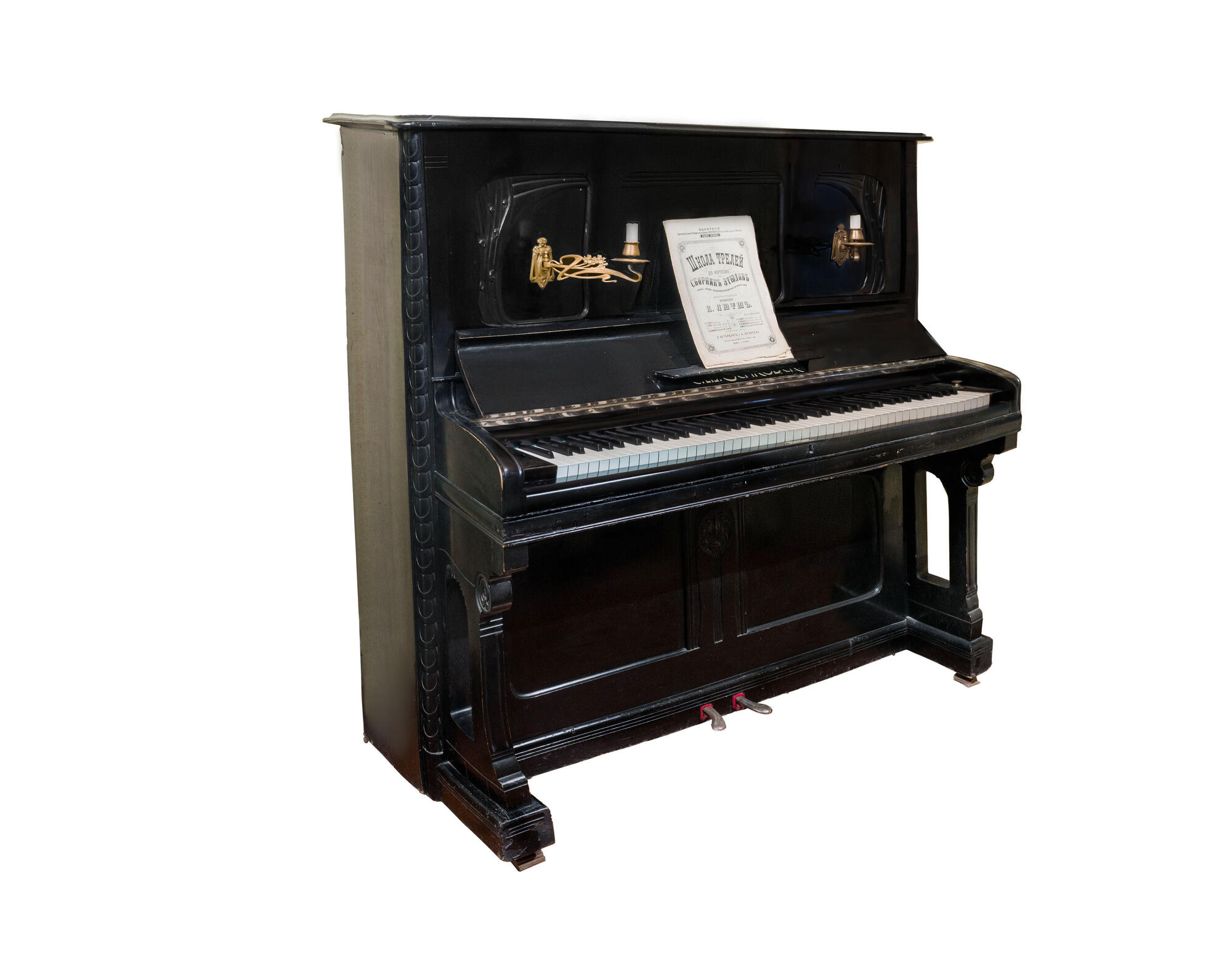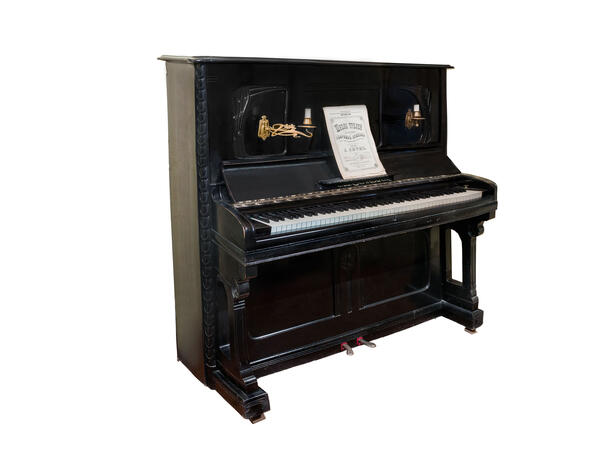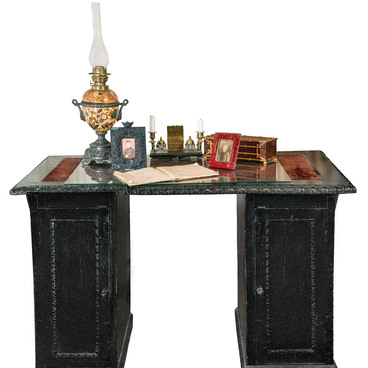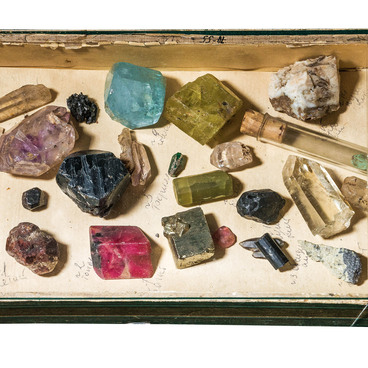There had previously been a piano from the St. Petersburg firm Schroeder in the Mamins’ house. The writer gave it to his nieces. The original instrument has not survived to the present time. To replicate the interior of the 19th century, a model similar to the one in Mamin-Sibiryak’s time was put in the dining room of the house-museum.
At the late 19th century, the writer’s mother, Anna Mamina, and his sister, Yelizaveta Udintseva, lived in the house on Sobornaya Street (now Pushkina Street). When Udintseva became a mother, they were in need of additional rooms. Then, the question arose regarding enlargement of the house. The cold seni (mud room) were turned into a dining room, where now the piano from the collection is placed.
In 1903, Dmitry Mamin-Sibiryak came from St. Petersburg to Yekaterinburg. He stayed at the “American Inn” so as not to trouble his relatives, and visited his mother and sister every day. Then, the writer’s house looked the same as it does now: it was finished with stone, a spacious dining room and a hallway made of brick were built.
His nieces, Yelizaveta Udintseva’s daughters, asked their uncle for a piano as a gift. At the time, such an instrument at home was a luxury item and was expensive. Dmitry Mamin-Sibiryak chose a piano from the St. Petersburg company “Schroeder”, which was famous for its quality.
Dmitry Mamin-Sibiryak stayed for a few days and left for the capital to his wife Olga Guvale and daughter Elena. This was the last time the writer visited Yekaterinburg.
The Petersburg piano factory “Schroeder” was founded in the 1810s by Johann Friedrich Schroeder. Products of this company were known in Russia and abroad. By mid-century, the company had produced about three thousand instruments.
In 1852, the owner died and his son, Karl Michael Schroeder, continued the business. He updated the technology of making piano, equipped a workshop in St. Petersburg with steam engines and introduced new models of the instrument with a range of seven octaves.
After the death of Schroeder Jr. in 1889, the company was inherited by his three sons. They opened company stores in Warsaw and Odessa and acquired a rival company. However, production soon fell into disrepair. After the revolution, the company was nationalized and the owners had to leave the country. During the Soviet years, the Lunacharsky Musical Instruments Factory was opened in its premises.
At the late 19th century, the writer’s mother, Anna Mamina, and his sister, Yelizaveta Udintseva, lived in the house on Sobornaya Street (now Pushkina Street). When Udintseva became a mother, they were in need of additional rooms. Then, the question arose regarding enlargement of the house. The cold seni (mud room) were turned into a dining room, where now the piano from the collection is placed.
In 1903, Dmitry Mamin-Sibiryak came from St. Petersburg to Yekaterinburg. He stayed at the “American Inn” so as not to trouble his relatives, and visited his mother and sister every day. Then, the writer’s house looked the same as it does now: it was finished with stone, a spacious dining room and a hallway made of brick were built.
His nieces, Yelizaveta Udintseva’s daughters, asked their uncle for a piano as a gift. At the time, such an instrument at home was a luxury item and was expensive. Dmitry Mamin-Sibiryak chose a piano from the St. Petersburg company “Schroeder”, which was famous for its quality.
Dmitry Mamin-Sibiryak stayed for a few days and left for the capital to his wife Olga Guvale and daughter Elena. This was the last time the writer visited Yekaterinburg.
The Petersburg piano factory “Schroeder” was founded in the 1810s by Johann Friedrich Schroeder. Products of this company were known in Russia and abroad. By mid-century, the company had produced about three thousand instruments.
In 1852, the owner died and his son, Karl Michael Schroeder, continued the business. He updated the technology of making piano, equipped a workshop in St. Petersburg with steam engines and introduced new models of the instrument with a range of seven octaves.
After the death of Schroeder Jr. in 1889, the company was inherited by his three sons. They opened company stores in Warsaw and Odessa and acquired a rival company. However, production soon fell into disrepair. After the revolution, the company was nationalized and the owners had to leave the country. During the Soviet years, the Lunacharsky Musical Instruments Factory was opened in its premises.



